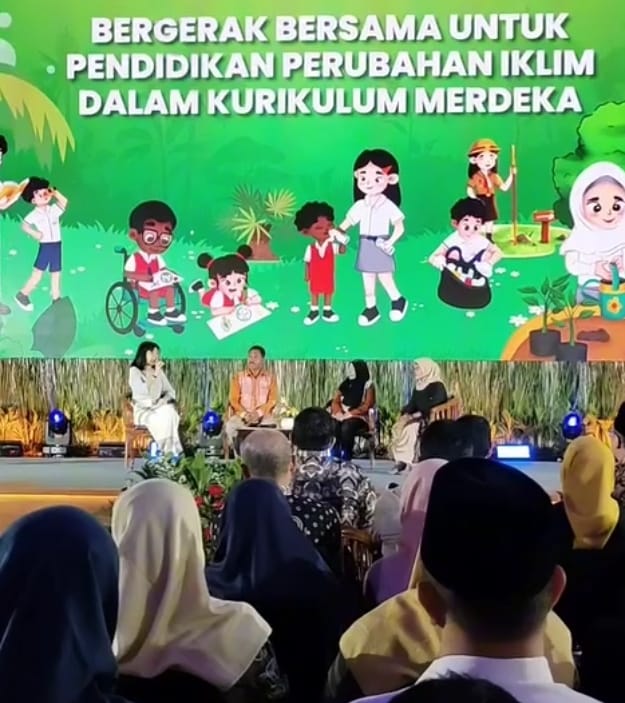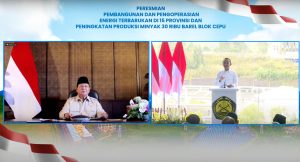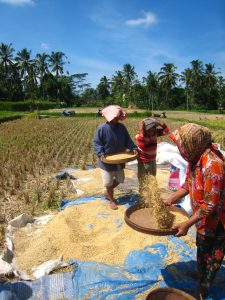
Jakarta—The government, through the Ministry of Education, Culture, Research and Technology (Kemdikbud Ristek), released a climate change education guide for elementary to secondary schools. The initiative aims to strengthen the young generation’s awareness of the threat of climate change, which is increasingly evident in various parts of the world, including Indonesia.
The guide was launched on 27 August at an event titled “Moving Together for Climate Change Education”, involving various educational organizations and stakeholders in Jakarta. It is 75 pages long and provides detailed information on the climate crisis, its causes and impacts, and the importance of climate change education in the national education system.
In his speech, Minister of Education, Culture, Research and Technology Nadiem Anwar Makarim emphasised the importance of shared responsibility to protect the earth by adopting an environmentally friendly lifestyle.
“We hope climate change education can be implemented effectively with support from all parties, including local governments and parents. This collaboration is the key to successfully integrating climate change education in schools,” he said in an official statement.
The guide was developed as part of the Merdeka Curriculum and is expected to be a tool for local governments, schools, principals, teachers, and parents in implementing education that focuses on increasing climate change awareness and collaborative steps to address it.
Anindito Aditomo, Head of the Education Standards, Curriculum, and Assessment Agency, explained that the guide was developed through a participatory and collaborative process that began in June 2023. The process involved academics, principals, teachers, education personnel, communities, and non-governmental organisations.
“Through this guide, we hope that existing good practices can be adopted more widely and become an inspiration for other schools,” Anindito said.
Meanwhile, Walhi released data showing that more than 5,400 villages in coastal Indonesia were inundated by tidal floods in the 2017-2020 period, caused by the climate crisis and the burden of large industries along the coast. On the other hand, the National Disaster Management Agency (BNPB) recorded a significant increase in hydrometeorological disasters last year, with 5,400 events affecting more than 8 million people.
This climate change education guide is expected to not only equip students with relevant knowledge and skills but also inspire them to become agents of change who can contribute to mitigation and adaptation efforts to the impacts of climate change in the future. (Hartatik)
Banner photo: The Education Standards, Curriculum and Assessment Agency of the Ministry of Education, Culture, Research and Technology (BSKAP Kemdikbudristek), BMKG, BRIN and several other institutions published a guidebook on Climate Change Education. (Source: Ministry of Education, Culture, Research and Technology)













